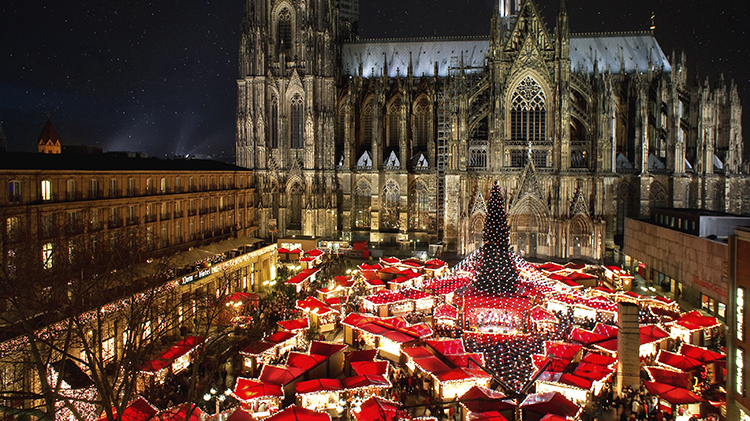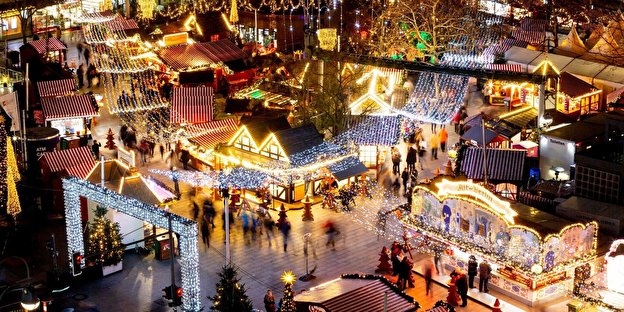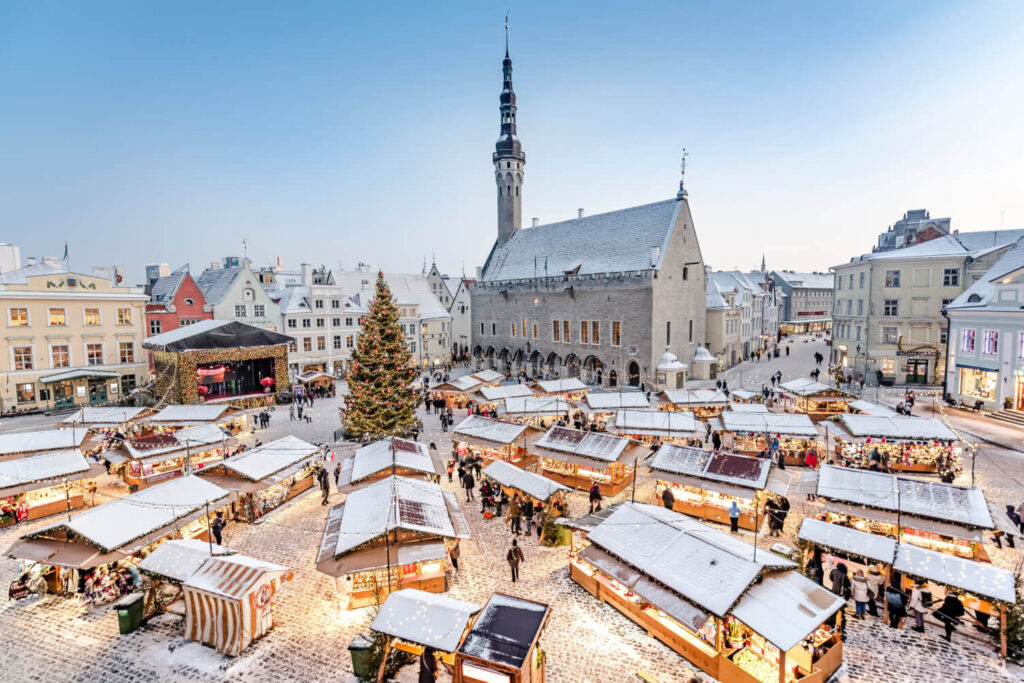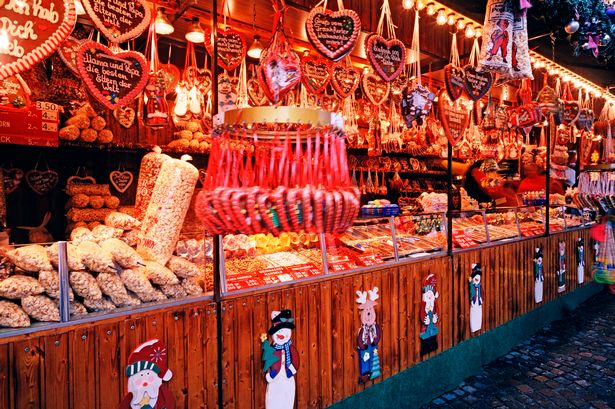By Panagiota Katsaveli,
People have the tendency to disagree on many topics, but I find it safe to say that we can all agree on one thing: Christmas is the most wonderful time of every year. The period leading up to Christmas, and mainly the month of December, is filled with holiday festivities, Christmas songs, decorations, and traditions that make this period so special and memorable. Some traditions may be more recent and connected to certain places, while others go back centuries and concern different communities. One long-held tradition, especially in the European continent, is the institution of Christmas markets.
Christmas markets are not simply a holiday tradition that was created for modern auditions with the intention to profit from the holiday spirit, but what most people are unaware of is that their existence goes way back in time. The long-gone ancestor of the Christmas market seems to be Vienna’s December market during the Middle Ages. Its first appearance is believed to have been in 1298, when citizens were finally given permission to hold a Krippenmarkt during Advent. However, the connection between today’s markets and open-air street markets is closer to those taking place in Germany; the first Christkindlmarkt is believed to have happened a century later than Vienna’s first similar event, in 1384. If you did not already know, we are referring to the one in the eastern hilltop town of Bautzen, Saxony. In the beginning, the markets revolved solely around selling meat, but as the centuries went by, they started providing other everyday purchases, and eventually seasonal treats, decorations, and crafts – with the escort of singing and dancing. The 16th century is considered the turning point for Christmas markets’ popularity. During that time, the teachings of the German protestant reformer, Martin Luther, suggested that the birth of Christ was a more appropriate gift-giving day compared to other similar occasions. Churches, who originally wanted markets to be held nearby to get more people to attend their services, soon found themselves competing against them for their congregation. Then, the practice of giving gifts for Christmas began to take off, and Christmas markets have been popular ever since.
So, now it is time to explore certain Christmas markets and the magic hidden in them. Since there is an abundance of Christmas markets around the European continent, I will simply focus on some that stand out the most. Keep in mind that all of them are carried out from the end of November until the end of December, so basically a whole month of such festivities each year!
For most people, the phrase “Christmas market” instantly brings to mind the impressive establishments in Germany, and it is only appropriate to talk about the most famous one of them, the Cologne Christmas Market, the biggest out of all the markets in this German city. It takes place near the iconic Cologne Cathedral, and it entails everything a traveler expects to find in a traditional German spread and even more: the glühwein, crafts, and twinkling lights. What makes it stand out compared to others is its entertainment, since more than 100 stage performances take place throughout the festival, including Christmas swing music and gospel. Nikolausdorf (Saint Nicholas’s village) was created for kids and tells the story of the real St. Nick, while each year the market includes even more attractions, like the “Christmas Avenue,” an LGBTQIA+ market, which is featuring different live performances and events.

In contrast to the more traditional version of Christmas markets offered in Cologne, Berlin takes a modern turn for this popular tradition. The city center is filled with around 80 Christmas markets -and the variety is such, that you can even find one specifically for dogs- so visiting them all is impossible. Out of them, Spandau is the biggest, while Weihnachtszauber in Gendarmenmarkt Square is the prettiest, filled with arts and crafts. Now admit it, you also thought of Germany first, did you not?

Heading to the north, it is time to talk about the Tallinn Christmas Market, which was named the Best Christmas Market of 2019, according to European Best Destinations. Tallinn’s festive offering is a magnificent affair, set in the heart of this stunning medieval town, where rooftops and cobblestones are covered with snow. When the time for the Christmas market comes, the Town Hall Square is packed: not only with over sixty wooden stalls that sell handmade wreaths, local arts and crafts, sweets, honey, and sheepskin rugs, but also by brass bands, bell ringers, and endless dance troupes. Since 1441, Estonia’s largest Christmas tree has been set up in front of the Town Hall every year, making it one of the very earliest to be displayed in Europe. Also, a Santa Claus is placed at the entrance to greet children and spread the holiday spirit, before they get to enjoy merry-go-rounds. Traditional Estonian Christmas fare will be available from local merchants, including black pudding and sour cabbage, as well as gingerbread and warming Christmas beverages.

These past few years things have not been easy for Christmas enthusiasts and Christmas market lovers due to the COVID-19 pandemic. Like many other events in which many people gathered, Christmas markets became a forbidden pleasure for the 2020-2021 holiday season, and hence part of the magic of celebrating Christmas was deprived of us. This year, some well-known markets were canceled due to COVID-19 restrictions, but for the most part, Christmas markets came back this holiday season!
To sum up, Christmas markets are one of the most festive and stable traditions in many western European countries that you should not miss! Visiting at least one Christmas market, whether that might be a well-known or less popular one, is a unique experience that enhances the holiday spirit. Trying out delicious treats, engaging in holiday festivities, and listening to Christmas tunes are simply some of the activities offered by each Christmas market. Not only will they boost your holiday fever, but also you will get the chance to be part of a century-old tradition that instantly gives a sentimental value to the establishment. So, it is safe to say that visiting a Christmas market during the holidays should be at the top of your bucket list!
References
- Best Christmas markets in Europe for 2021, thetimes.co.uk, Available here
- A brief history of Christmas markets, theguardian.com, Available here




